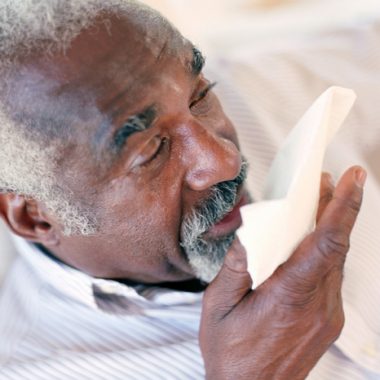GPs see up to 89 extra patients per week in flu season, finds study

GP practices have an average of 29 weekly consultations just for common respiratory conditions during the winter months, according to new research.
The study found that for practices with 10,000 patients, the burden during winter months ranges from 12 respiratory appointments in the quietest period, to 89 in the busiest.
Researchers said they hope that highlighting this workload variation will lead to an improved public health response and better planning of services.
The study team, comprised of Public Health England, RCGP and University of Surrey researchers, set out to estimate the burden on GPs of respiratory pathogens associated with seasonal activity.
They analysed data from the PHE GP in-hours syndromic surveillance system (GPIHSSS) between 2011 and 2015, covering four winter seasons.
The paper, published in Cambridge Epidemiology & Infection, said: ‘The total GP in-hours consultation data recorded for upper and lower respiratory tract infections was 12 million, equivalent to 29 consultations per week in a general practice with 10,000 registered patients, ranging from 12 in the quietest week to 89 in the busiest week studied.’
It continued: ‘Influenza and respiratory syncytial virus had the greatest seasonal variation of the pathogens studied and were associated with the biggest modelled burden on in-hours GP consultation data for respiratory tract infections. Streptococcus pneumoniae and rhinovirus also were associated with a significant burden.’
Commenting on the impact of the findings, the researchers said: ‘Understanding the burden of respiratory pathogens on healthcare is key to improving public health emergency response and interventions…
‘Estimates of respiratory burden, including the relatively high burden of S.pneumoniae and respiratory syncytial virus on adults, will add to the evidence available for deciding future priorities for public health interventions which have focussed in the past primarily on influenza.’
There was confusion earlier this year over orders for the next season of influenza vaccines, after practices were told by NHS England to freeze all orders while the clinical evidence and cost-effectiveness data was re-evaluated.
GPs have since been told to provide the adjuvanted trivalent inactivated flu vaccine for all 65s and over, and the quadrivalent vaccine for at-risk patients between the ages of 18 and 64, although concerns have now been raised over when GP practices will recieve the aTIV vaccine.
Visit Pulse Reference for details on 140 symptoms, including easily searchable symptoms and categories, offering you a free platform to check symptoms and receive potential diagnoses during consultations.











